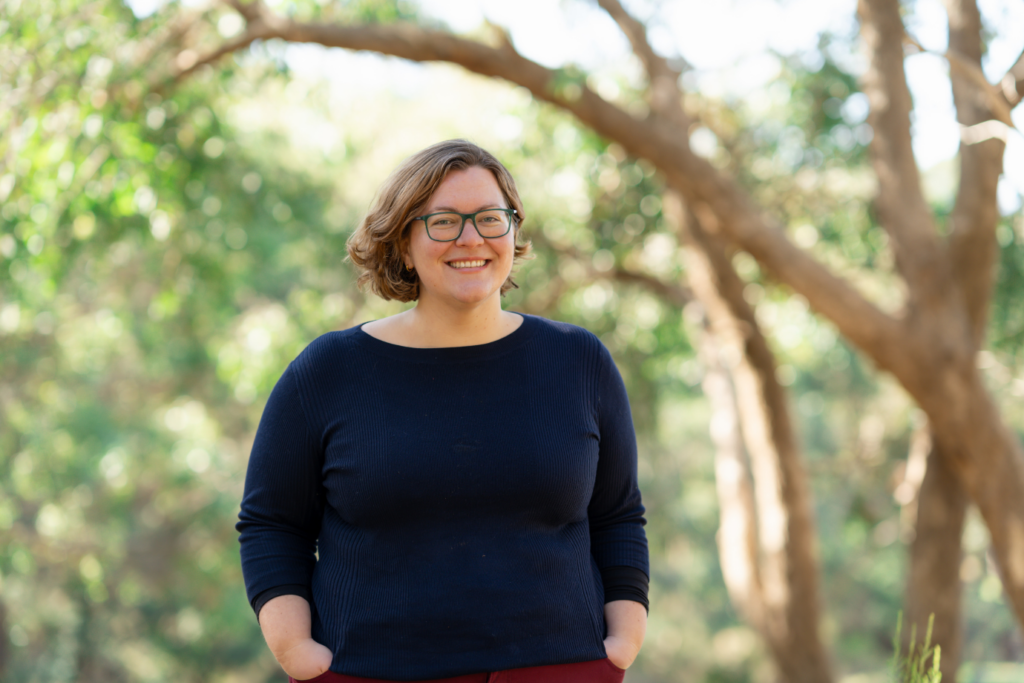It’s official. Australia has just experienced its hottest spring on record.
So, what do rising temperatures mean for Australia?
I recently put the question to Founder of Sweltering Cities, Emma Bacon (pictured above), as part of a new series in the lead up to the next federal election asking leaders and advocates to share facts and information about the issues they work on every day — issues that Australians then vote on, and will be doing so by May 2025.
Sweltering Cities is an organisation that works with communities across Australia experiencing the impacts of extreme heat. Its mission is to advocate for safer, cooler cities and ensure that no one is left behind in dangerously hot suburbs, workplaces or homes.
With climate change driving longer, more intense heatwaves, it’s vital we understand the facts and take action to protect ourselves and our communities.
Emma Bacon shares some key information about extreme heat and rising temperatures below.
Heatwaves are Australia’s deadliest environmental disaster
Heatwaves kill more Australians than all other disasters combined, including floods, bushfires, and storms. Heat related fatalities and illness are projected to increase as temperatures rise. Learning how to identify and respond to heat-related illnesses, like heat exhaustion and heatstroke, can save lives.
Women face unique risks in heatwaves
Women are disproportionately impacted by extreme heat, particularly during pregnancy, while caring for children, or as older adults. Economic inequality and injustice also puts women at risk, as whether you can afford to keep cool is one of the most important factors in heatwave safety.
Right now, women in Darwin Correctional Centre are living in overcrowded rooms where we’re hearing reports of broken air conditioning and that the women are forced to spend hours each day outside with limited shade. You can read more about this issue and sign the petition calling for safe conditions for these women here.
Better housing standards are essential
Poorly insulated homes trap heat, putting renters and low-income households at higher risk during extreme heat. Living in a hot home can mean long, baking hot days, sweaty sleepless nights and dreading summer heat. Supporting campaigns for mandatory housing standards, like better insulation and energy efficiency requirements, can create safer living conditions for all. We also need to make sure that the homes we build now are safe in the future.
The urban heat island effect means some suburbs can be 10°C hotter
Cities are significantly hotter than rural areas due to the urban heat island effect caused by lack of shade, materials like concrete that absorb heat, and dark surfaces that attract heat. Planting trees, creating more green spaces, and reducing the use of heat-retaining materials like asphalt can help cool urban areas.
Misinformation undermines action and increases risk
Heatwaves are sometimes dismissed as a good day for the beach, but that doesn’t reflect the risks that communities face from record heat. Misinformation about how serious extreme heat is, the causes of power cuts, or whether hotter temperatures are just normal climate fluctuations can delay necessary action and discourage people from taking the risks seriously. Sharing accurate information, such as the health risks of extreme heat, helps counter this narrative.
A heatwave is a great time to call Nan (or anyone else)
Simple actions, like checking in on family, friends and neighbors or those living alone, can make a big difference. Isolation can be deadly during heatwaves, and a call or a text can be the difference between someone feeling like they’re alone in the heat or have options to get help keeping cool. You can ask how people are feeling, check if they need help, and let them know they can ask for help.
Sweltering Cities has put together some information to help you know who to check in on, what to say and other advice. Read more here.
Thanks to Emma Bacon from Sweltering Cities for sharing facts about the increasing heat which will continue to be with us.
Let’s draw the line between the issues we all care about – including climate and global heating – and our informed vote as we all walk into the polling booth in the coming months to elect the people who will make decisions for us on these vital issues. It really is up to us!
You can check out other articles in this ongoing series here and here.



